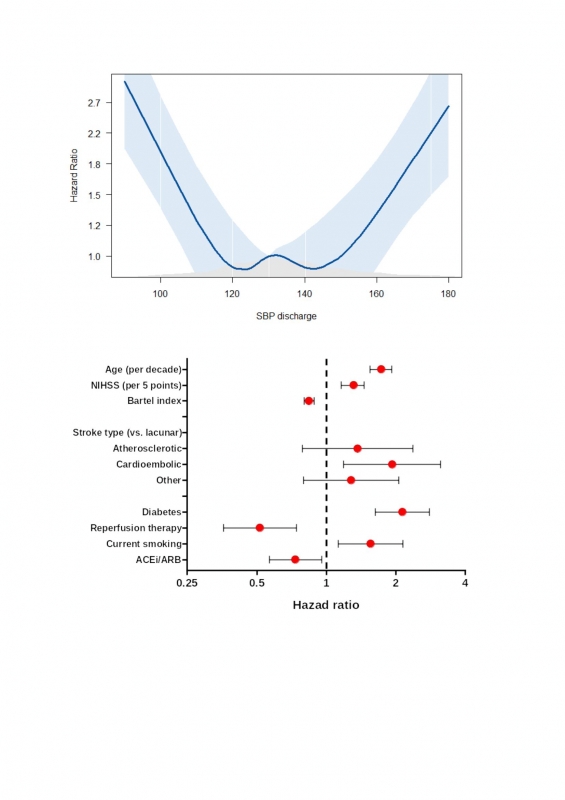PREDICTING LONG-TERM SURVIVAL AFTER AN ISCHEMIC STROKE
Background: To identify factors influencing long-term survival after ischemic stroke is of utmost importance. The aim of the present study was to analyze long-term survival and to assess factors associated with increased mortality following ischemic stroke.
Design and methods: Consecutive patients hospitalized between March 2009 and January 2012 for their first-ever ischemic stroke in 2 large tertiary hospitals in the Czech Republic were enrolled in this survey.
Results: In total, 736 patients (mean age 66 ±11 years; 58% men) were included in this analysis. The cumulative risk of death at 1, 3, 5 and 10 years was 13.6%, 20.8%, 29.3% and 48.3%, respectively. After adjusting for age and gender, patients with discharge systolic blood pressure between 120 and 140 mmHg showed the lowest mortality risk (Fig. 1) Higher age, higher NIHSS and more severe functional impairment, diabetes and current smoking were associated with higher mortality risk, while the reperfusion therapy, and renin-angiotensin system blockers were associated with a lower mortality (Fig. 2).
Conclusions: Despite several advances in stroke management, the mortality remains high. Timely reperfusion therapy use together with renin-angiotensin system blockers may decrease the risk of mortality.


